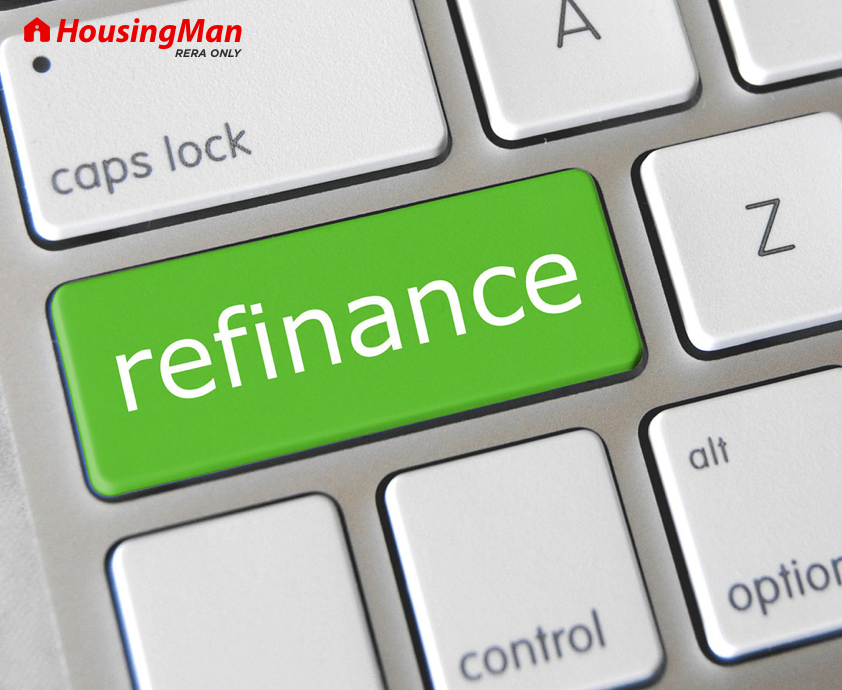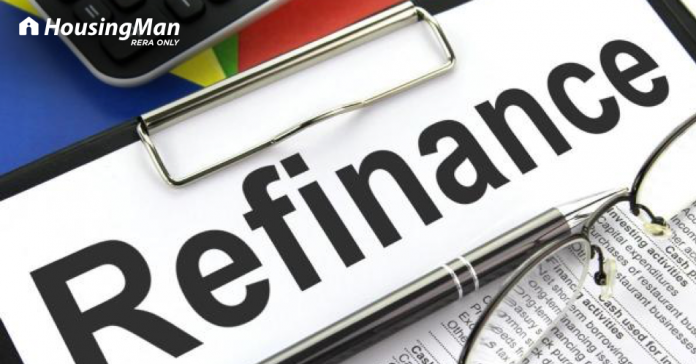Taking loan to buy a home is a common financial decision. Some, avail this facility for tax saving purposes, others just to spread the huge liability over the years. But, times are not the same always and there should be some way to end, reduce or extend the loan term.
One of the popular ways of doing so, is by going for refinance. What does this mean? How does it work? and when should we consider this option?
Let’s find out answers to all these questions about refinance.
Refinance definition
Refinance is the process of taking loan to replace the existing mortgage. This process helps reducing the overall loan rate, reduce the loan term and helps shifting to a better proposition, such as, from fixed-rate to floating-rate arrangement and so on.
In simple terms, Refinancing is the replacement of an existing debt obligation with another debt obligation under different terms. When a company refinances, it typically extends the maturity date or changes the interest rates. Companies or individuals refinancing loans may have to pay a penalty or fee.
How does refinancing work
How refinancing works is a common doubt. The idea of home refinance may work differently for different people. However, this difference is only about the advantages sought from it and the varying financial objectives.
Technically, the refinance mortgage process goes something like this:
- A person takes a loan with specified terms and conditions.
- Newer terms are introduced in other loan options – from the same finance company and sometimes, from other competitors.
- Refinance rates are assessed in addition to evaluating other loan conditions such as break-even point, EMI amount, term, etc.
- Person opts to refinance home loan and the new loan completely settles the existing loan.
How refinance can help tap into the home equity
One of the refinance types is cash-out refinance. In this refinancing scheme, the borrower takes loan of amount higher than the current amount owed and gets the difference paid in cash. Thus, cash-out refinance helps the home owner improve cash flow and divert it into other causes which were left unattended due to existing debt.
This is life, after all! It may demand anything of any size at any point of time.
So, when you come face to face with some unexpected expense or when you need cash for home renovation purpose, you get the amount squeezed from the current loan plan by taking the refinance route.
How much cash you get out of the refinance scheme depends upon the home equity built over the time, the size of the due loan and the current market value of the home. For simpler understanding, there is a cash-out refinance calculator available that tells whether it is worthwhile to consider this option.
Using a cash-out refinance scheme delivers following objectives:
- It gives cost-effective alternative to get cash as other cash loan or unsecured loan options come at exorbitant interest rates.
- When you need managing more than one debt, the equity in the house is used to reduce the total payments to be made per month.
- It helps have cash for home renovation purposes that ultimately helps enhance the value of the house.

Other reasons to Refinance Investment Property
The decision to refinance mortgage is taken in order to improve the financial situation; especially, to improve the cash in hand figure. The investment in property is done largely to save tax. But, when the tax objectives are met or when enough of resources have been chipped into the property and person wants to do something else with the money than keep on repaying the home loan, the option of home refinance is evaluated with all seriousness.
This option is found to have advantages such as:
- Helps save money: Normally, a person will refinance mortgage at the rates lower than the rate at which he has availed the loan currently. Thus, better deal in terms of loan rate is certainly effective in bringing down the monthly expenses.
- Reduce the loan term: When you have been into a loan term for longer period, say 25 years or so, you have very small balance left to be repaid. So, refinancing for shorter period can help consolidate loan liability rather quickly.
- Helps pay off other loans: The cash generated from the cash-out refinance, or the money saved due to better loan rate of the new loan can help divert the funds to consolidate other loans running.
- Have convenience of extending the term: In case of business property loans, when the business reaches the break-even point, the entity may reconsider the length of the loan and get it approved if their track record shows timely payments and constant growth in terms of business performance.
So, is there any catch?
Well, Yes, There is certainly a catch as refinancing may not be the correct option always. The first catch is break-even point. A refinancing situation works in the favor of the borrower only if all the costs etc, are factored properly and earns more than break-even at the end. There are other costs involved such as closing cost of home loan, processing fees, transaction costs etc that should be taken into account to find the final cost of refinancing. If it is less than break even, then refinancing is certainly a loss-making proposition.
Higher interest cost incurred due to extension of the loan period may not result into favorable figures. The lifetime cost should be evaluated by doing loan amortization to find the effect of various kinds of loans on interest rates.
Also, the most bitter of all facts is, refinancing is actually not making you debt-free. The debt is still there, liability has just reduced. And the same applies to the situation of collateral too. Refinancing home loan is not making the property free hold; the risk of losing it in foreclosure in case of non-payments is also not vanished. So, evaluate your situation correctly and from all angles, take an expert opinion, if necessary and then make a decision about refinancing the home loan.












